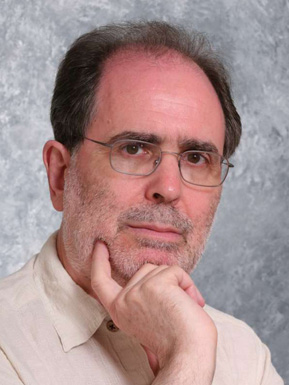Tonight, Bach in Modern Times
CFA's Rifkin explores, performs the Brandenburg Concertos

Johann Sebastian Bach ranks among the world’s great composers and his Brandenburg Concertos among the most well known and familiar pieces of Western classical music. The German composer could hardly have foreseen that they would be so widely performed and revered since they received little notice in Bach’s own time. So what do the concertos tell us — or not tell us — about the composer and his world? And how did they achieve their place in Western music?
Joshua Rifkin, a professor of music in the College of Fine Arts and a fellow of the University Professors Program, will answer these questions and more during tonight’s evening of discussion and music, Bach’s Brandenburg Concertos: Musical Text, Historical Text, Political Text, Religious Text, at the Metcalf Trustees Ballroom at One Sherborn Street. Afterward, he will perform two of the concertos with BU faculty members and alums.
BU Today spoke with Rifkin to find out more about the Brandenburg Concertos.
BU Today: What is the history of the Brandenburg concertos?
Rifkin: A concerto, in modern terminology, is a work in which one or more instruments play a featured role against a body of instruments assigned fundamentally a supporting position. The Brandenburg Concertos are a set of six pieces, all with more than one featured instrument, that Bach gathered together in 1721 and dedicated to a German nobleman, Christian Ludwig, margrave of Brandenburg-Schwedt.
Brandenburg is a territory in northern Germany, surrounding Berlin. It was the base of the powerful Hohenzollern family, who became kings of Prussia and more or less dominated German politics until the end of the first World War. Christian Ludwig was the youngest son of the first King of Prussia. He wielded no political power, but had ample means to pursue artistic interests.
What inspired the concertos?
Actually, we have no idea. Some writers think the dedication to Christian Ludwig reflects political strategies of Bach’s employer at the time, Prince Leopold of Anhalt-Köthen, who had close ties to Christian Ludwig’s family. Others suspect that Bach was angling for a job with the margrave. Whatever the case, Bach had already composed all of the pieces as separate items, although here, too, we have no specific knowledge of the circumstances or motivations that led him to do so.
What makes the Brandenburg Concertos unique?
First, the variety of the instrumental forces, but more importantly, the endless imagination with which Bach handles them. Whereas many concertos are like a play in which the star or stars settle into fixed roles and reduce everyone else to bit players, in the Brandenburg Concertos, roles and relationships are constantly shifting. Finally, they have lots of good tunes.
How did the concertos achieve their iconic status?
They achieved their status in part by their very quality, of course, but also by Bach’s modern fame, and very possibly, too, through the associations that the name Brandenburg would have had for German audiences of the late 19th and early 20th centuries. More than anything else, though, the Brandenburg Concertos were lodged into contemporary musical consciousness through modern recordings, most notably the LP record.
What do the concertos tell us about Bach?
The individual concertos show us how inventive and untiring he was in discovering new possibilities in the media and formal conventions available to him. Their assembly into a set shows something of his systematic character and his determination. Some scholars also believe they convey something of his religious or political beliefs, or of his classical learning.
Bach’s Brandenburg Concertos: Musical Text, Historical Text, Political Text, Religious Text takes place tonight, February 19, at 7 p.m. in the Metcalf Trustees Ballroom on the ninth floor at One Sherborn Street. Admission is free and open to the general public. Contact Victor Coelho at 617-353-2230 or blues@bu.edu for more information.
Click the player to listen to the first Brandenburg Concerto. Recording by Columbia Chamber Orchestra, Fritz Reiner, dir., 1949.
This audio presentation requires the Flash plugin available at Adobe.com
Vicky Waltz can be reached at vwaltz@bu.edu.
Comments & Discussion
Boston University moderates comments to facilitate an informed, substantive, civil conversation. Abusive, profane, self-promotional, misleading, incoherent or off-topic comments will be rejected. Moderators are staffed during regular business hours (EST) and can only accept comments written in English. Statistics or facts must include a citation or a link to the citation.